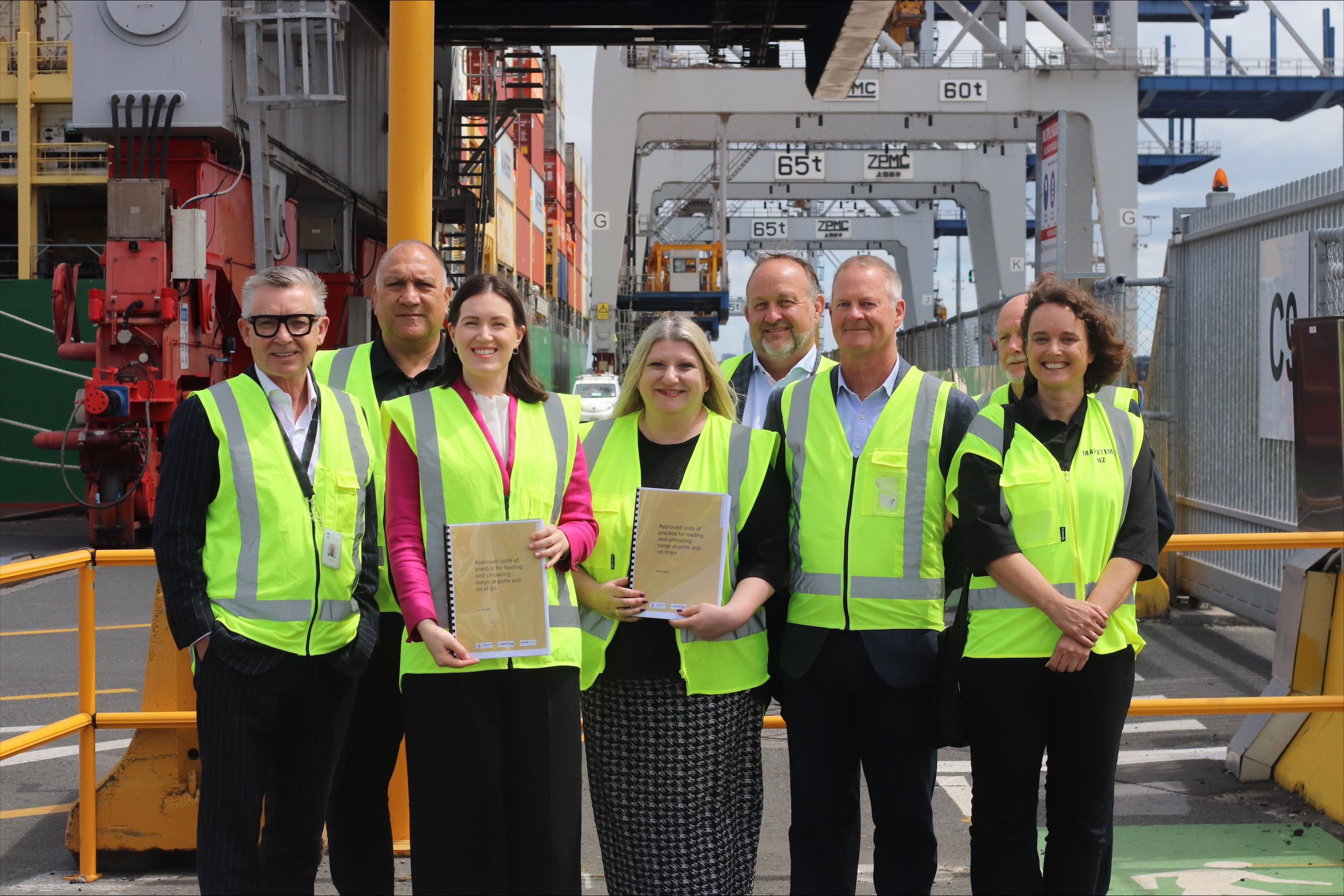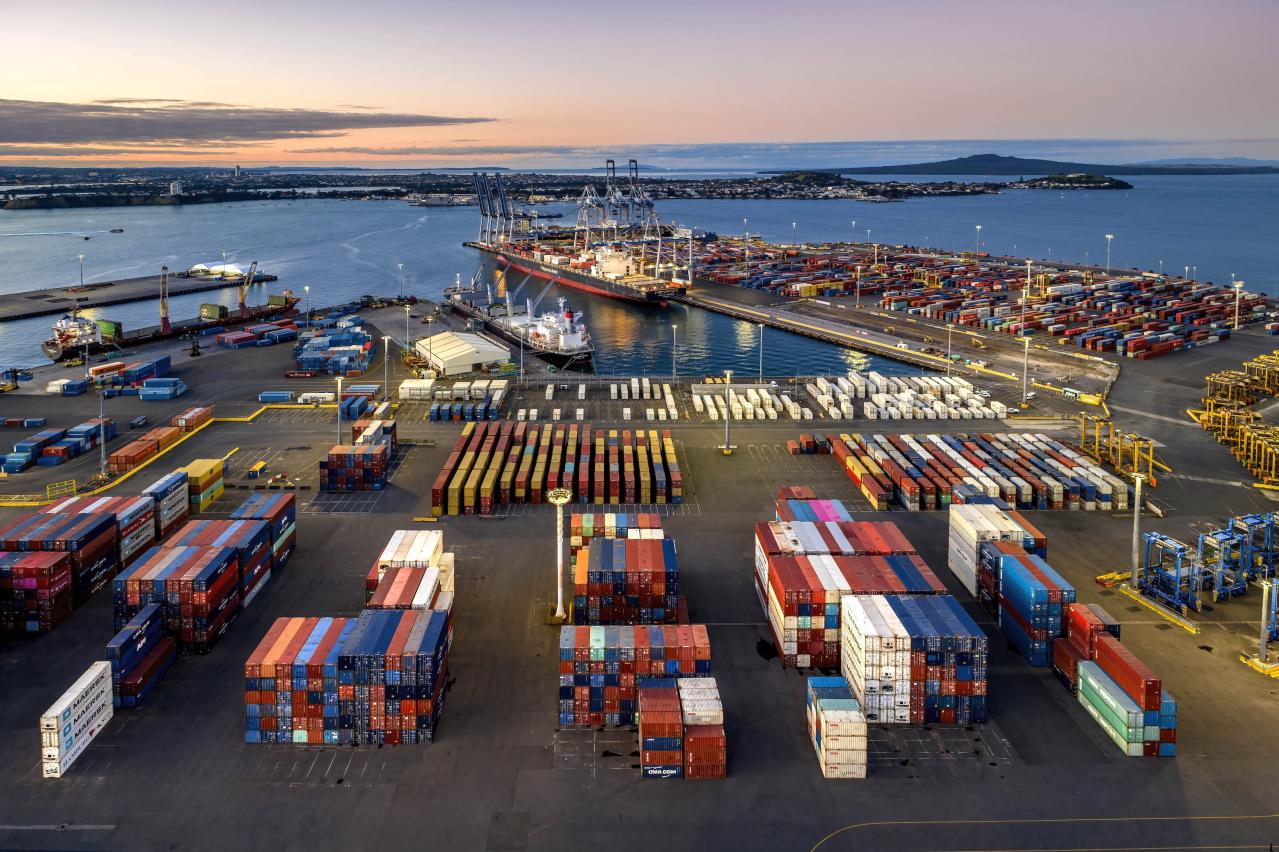

A national set of safety standards has been approved for Aotearoa's ports industry. Photo/Ports of Auckland Facebook
National code of practice ‘big win’ for wharf workers
New safety standards at New Zealand's ports have been introduced to address the rate of deaths and injuries in the maritime sector.


Community leaders back Aotearoa amid concerns over Cook Islands-China ties


Timoci Tavatavanawai: An inspiring journey to All Blacks stardom

Pacific leaders call for peace amid Middle East tensions as Melanesia eyes regional solidarity

Community leaders back Aotearoa amid concerns over Cook Islands-China ties


Timoci Tavatavanawai: An inspiring journey to All Blacks stardom
There are hopes that a nationwide code of practice for loading and unloading cargo will improve safety for stevedores following a series of workplace deaths.
“The ports industry is one of the most dangerous sectors in New Zealand,” says port worker Kima Iosua.
“We’ve got high fatality and injury rates at the ports, so it’s really good to have those minimum standards regulated and enforced across New Zealand.”
The Approved Code of Practice (ACOP) was launched on Friday by the Port Health and Safety Leadership Group, a collective of stevedoring companies, the Port Industry Association, unions, and Maritime NZ.
Iosua, who has worked as a stevedore for eight years, said introducing mandatory standards for all companies in the sector was a relief.
“It’s a big win for our people and just for workers in general across the port. Everybody has the right to go to work and to know that you're going to come home and see your loved ones again.”

Workplace Relations and Safety minister Brooke van Velden with Maritime NZ director Kirstie Hewlett and members of Port Health and Safety Leadership Group. Photo/Supplied
The announcement follows the recent conviction of former Ports of Auckland boss Tony Gibson, who was found guilty in connection with the death of Pala’amo Kalati in August 2020, who was crushed by a shipping container in 2020.
Over the past decade, New Zealand's ports have reported 18 deaths and nearly 400 serious injuries.
Iosua has Tokelauan and Tuvaluan heritage and says most of the stevedore workforce are Pasifika.
“We've got a lot of family members that work together, fathers, sons, cousins, uncles, nieces, aunties, sisters … and I guess that's the case for the industry across New Zealand as well.
“So it's good to have this ACOP, to ensure that whatever working environment that you're in, that you do go home safely at the end of the day.”

The Ports of Auckland shipping yard. Photo/Website
The plan includes regulations for unloading and loading cargo, limits on consecutive night shifts to manage fatigue, and improvements in training and incident reporting.
The Port Health and Safety Leadership Group said in a statement that the six focus areas identified would significantly impact worker safety.
"We owe it to those working on ports every day, the people who have died, their families, and those who have been injured, to improve safety on ports."
Minister for Workplace Relations and Safety Brooke van Velden praised the collaborative effort involved in drafting and finalising the document, highlighting it as a testament to the sector working together towards a common goal.
“I know many businesses and workers want to improve and comply with the health and safety regulations but lack consistency and guidance.
“I am pleased the sector has developed a solution with industry, experts, workers and businesses, using their views and expertise.”